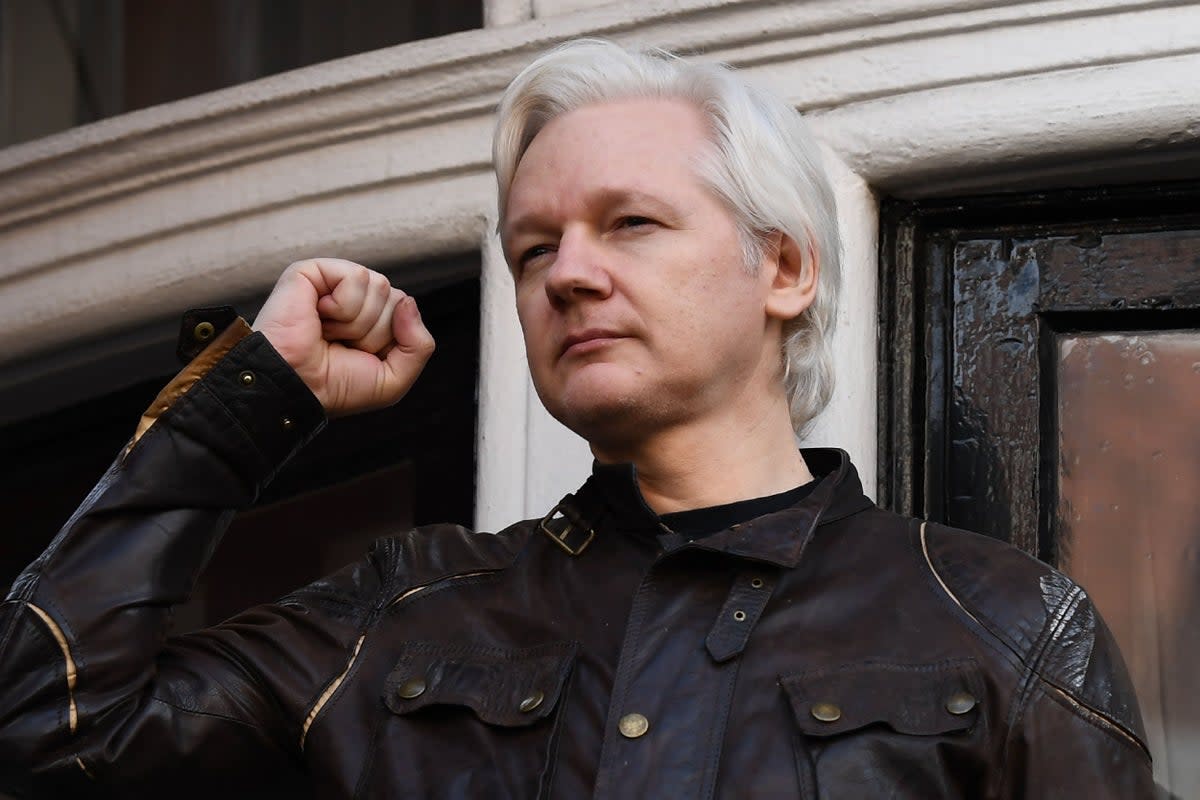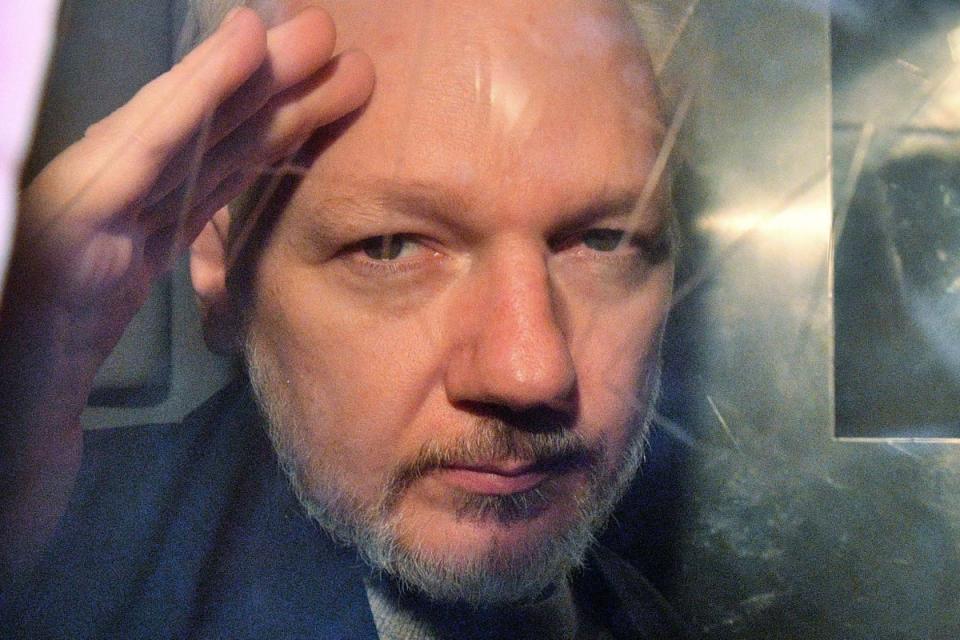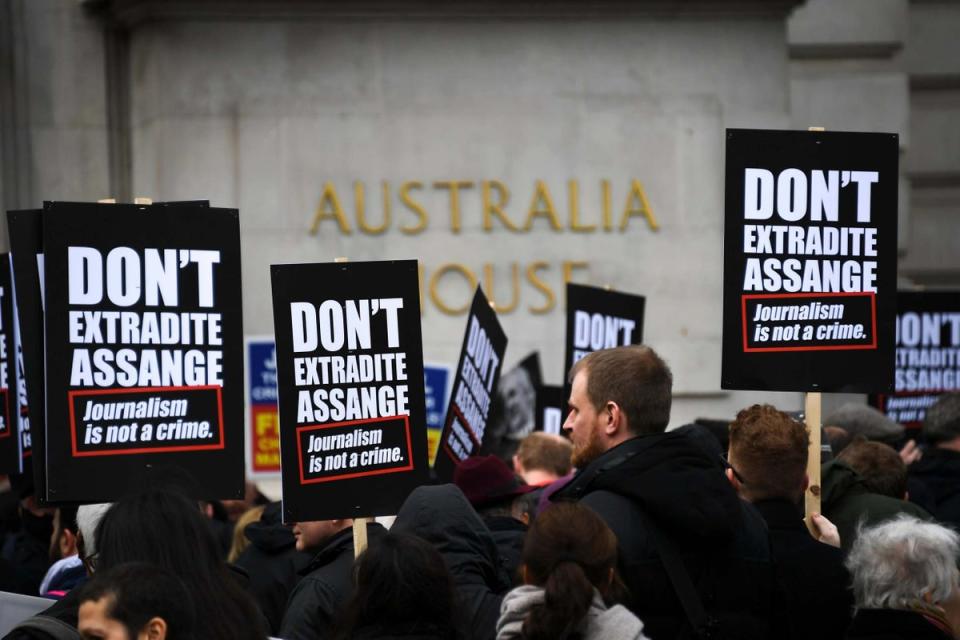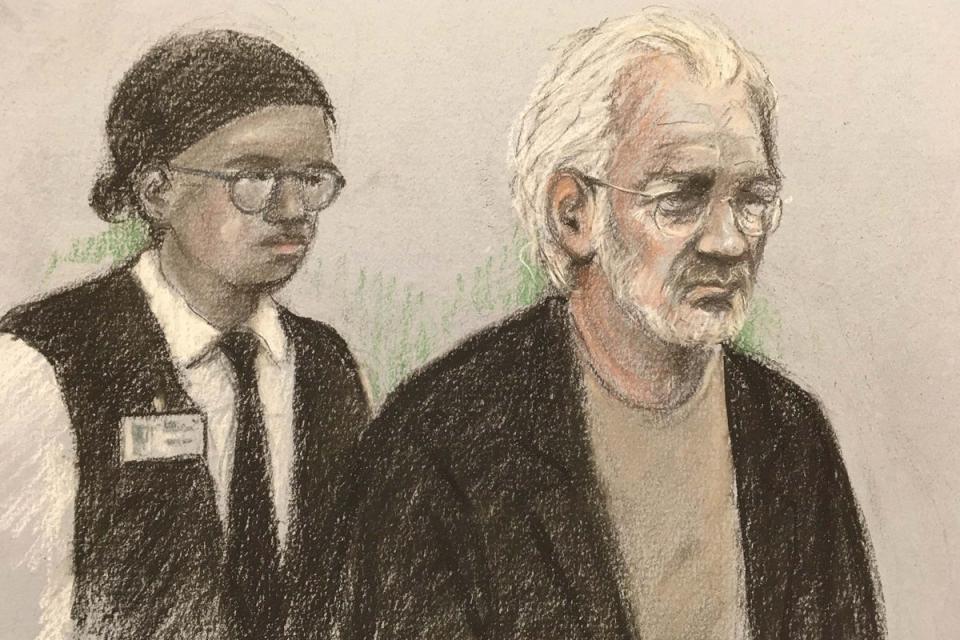Where is Julian Assange now and what happens next to the WikiLeaks founder?

US President Joe Biden has stated that he is taking Australia's request to withdraw Julian Assange's prosecution into consideration.
Recently, the Australian parliament passed a resolution, supported by Prime Minister Anthony Albanese, requesting that Assange be brought back to his home nation of Australia.
In response to a question about Australia's request on Wednesday, the president stated, "We're considering it."
Mr Albanese declared that he was "increasingly optimistic about an outcome" and that Mr Biden's remarks were "encouraging"."Mr Assange should be allowed to go back home," he stated to Sky News Australia.
March saw the suspension of the extradition process when the London High Court ordered the United States to guarantee Assange would not be executed.
By the end of May, the High Court is expected to assess any reply from the US authorities.
WikiLeaks founder Julian Assange is facing extradition from the UK to the US, where he is accused of publishing secret and sensitive information.
The 52-year-old Australian set up WikiLeaks in 2006, which released confidential documents and images into the public domain.
Assange spent seven years inside the Ecuadorean embassy in London, avoiding extradition to Sweden, where he faced sexual assault allegations which he refutes, before Ecuador suddenly withdrew his asylum status in April 2019.
Assange has been incarcerated in HM Prison Belmarsh in London since April 2019, as the United States government's extradition effort is contested in the British courts.
Here, the Standard takes a look at who Assange is and why he is facing extradition:

Who is Julian Assange?
Julian Assange was born in Townsville, Queensland, Australia in July 1971.
He had a nomadic childhood while his parents ran a touring theatre.
Assange went to several schools before studying programming, mathematics, and physics at Central Queensland University and the University of Melbourne but he did not complete a degree.
He began hacking at the age of 16 under the name Mendex, starting up a hacking group called "the International Subversives" with two others.
In 1995, Assange was accused of dozens of hacking activities in Australia.

He was fined several thousand Australian dollars and only avoided a prison term on the condition that he did not reoffend.
From there, he spent three years working with an academic, Suelette Dreyfus, researching the subversive side of the internet and writing a book with her called Underground.
What is WikiLeaks?
The international non-profit organisation, WikiLeaks, was set up by Assange and several others as an online "dead-letterbox" for whistleblowers and leakers of sensitive information.
Its website, initiated in 2006 in Iceland, published internet censorship lists, leaks, and classified media from anonymous sources.
Drone strikes in Yemen, Turkish president Erdogan's post-coup purges, and extrajudicial executions in Kenya were just some of the revelations that emerged in material published by the site.
But it wasn't until WikiLeaks began publishing documents by US Army intelligence analyst Chelsea Manning in 2010 that it make headlines around the world and become a household name.

The Manning material included the Collateral Murder video from April that year, showing US soldiers shooting dead 18 civilians from a helicopter in Iraq, including journalists Namir Noor-Eldeen and Saeed Chmagh.
The website went on to release new tranches of documents, including five million confidential emails from US-based intelligence company Stratfor.
The website exists to this day, publishing work by whistleblowers across the web under the editorship of Kristinn Hrafnsonn.
Why is Assange facing extradition to the US?
In 2010, Assange was arrested in the UK and later bailed after Sweden issued an international arrest warrant over allegations of sexual assault.
Swedish authorities wanted to question him over claims that he raped one woman and sexually molested another in August 2010 during a trip to Stockholm where he was giving a lecture.
He claims both encounters were entirely consensual.
The long legal battle that ensued saw him seek asylum in the Ecuadorean embassy in London to avoid extradition to Sweden.
The WikiLeaks founder had always argued that he could not leave the embassy because he feared that he would be extradited from Sweden to the US to be put on trial for confidential US documents.
He spent seven years inside the embassy before Ecuador suddenly withdrew his asylum status in April 2019.
The country's president, Lenin Moreno, tweeted that Ecuador had taken a "sovereign decision" to withdraw diplomatic protection.

In April 2019, British police arrested him, removing him from the Knightsbridge building and taking him into custody.
On May 1, he was sentenced to 50 weeks in jail in the UK for breaching his earlier bail conditions.
Swedish prosecutors then reopened the investigation into the 2010 rape allegations and the US filed 17 new charges against Assange, alleging that he violated the Espionage Act in relation to the 2010 documents he published.
WikiLeaks called the announcement "madness" and "the end of national security journalism".
As Assange prepared to fight extradition from the UK to the US, Swedish prosecutors announced they would drop the investigation against Assange because they said the evidence was not strong enough to form the basis needed for filing an indictment.
He is currently jailed in HMP Belmarsh in London, with another hearing to be held on May 20 to evaluate the appeal.
According to press freedom groups, it would create a risky precedent for journalists to face criminal charges for disclosing materials that have been leaked, even in cases where doing so serves the public interest, should Assange be found guilty under the US Espionage Act.
Who has supported him?
Opinions of Assange have been divided for years.
Many politicians, activists and celebrities have come out in support of the WikiLeaks founder.
These include Brazilian president Luiz Inácio Lula da Silva, Russian president Dmitry Medvedev, Labour Party leader Jeremy Corbyn (then a backbench MP), and Spanish Podemos party leader Pablo Iglesias.
He also garnered support from many leading activists and celebrities, including Mary Kostakidis, Noam Chomsky, Vaughan Smith, artist Ai Weiwei, singer Roger Waters, and Vivienne Westwood.
In November 2018, Pamela Anderson, a close friend of Assange, gave an interview with 60 Minutes in Australia in which she asked Australian prime minister Scott Morrison to "defend your friend, and get Julian his passport back, and take him back to Australia and be proud of him".
On the other hand, others like President Joe Biden have called him a "terrorist", while former Australian prime minister Julia Gillard described his activities as "illegal".
Mike Pompeo called WikiLeaks "a non-state hostile intelligence service often abetted by state actors like Russia".

 Yahoo News
Yahoo News 
